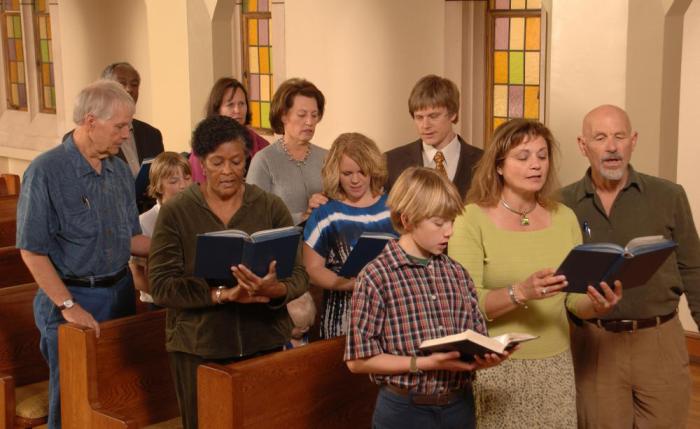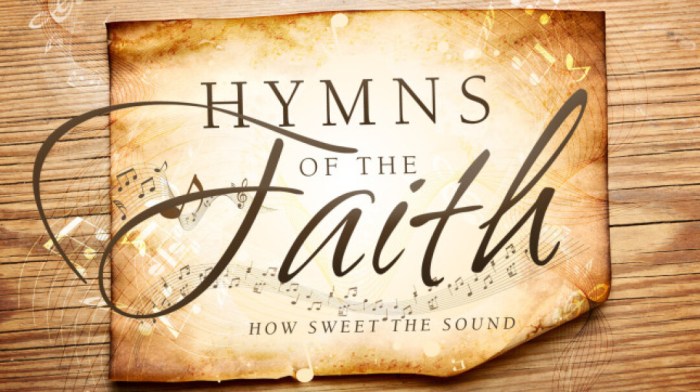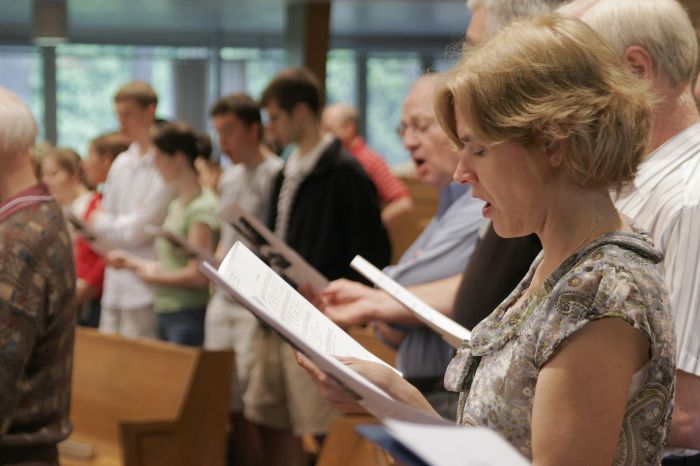Colonists in New England participated in congregational hymn singing, which played a significant role in their religious and cultural life. This practice fostered a sense of community, expressed shared beliefs, and influenced social and religious practices.
Congregational hymn singing was a central part of worship services, shaping religious experiences and promoting theological understanding. It evolved over time, influenced by changes in musical styles, theological perspectives, and social conditions.
Congregational Hymn Singing in New England: Colonists In New England Participated In Congregational Hymn Singing

Congregational hymn singing played a pivotal role in the religious and cultural life of colonists in New England. It fostered a sense of community, unity, and shared beliefs, and significantly influenced social and religious practices.
Common Hymns and Themes
- The Bay Psalm Book (1640): The first book of hymns published in North America, containing 148 metrical versions of Psalms.
- The New England Psalm Singer (1770): A collection of hymns with more varied tunes and themes, including patriotic and devotional songs.
- Themes: Hymns often expressed themes of praise, thanksgiving, repentance, and hope, reflecting the colonists’ religious beliefs and experiences.
Singing Masters and Hymnody Development, Colonists in new england participated in congregational hymn singing
Singing masters, such as Thomas Symmes and William Billings, played a crucial role in the development of hymnody in New England. They taught singing techniques, composed new tunes, and organized singing schools to promote musical literacy.
Social and Cultural Impact
Fostering Community and Unity
Congregational hymn singing created a sense of belonging and solidarity among colonists. It allowed them to express their shared beliefs and experiences through music.
Expressing Values and Experiences
- Hymns provided a medium for colonists to express their values, such as patriotism, loyalty, and gratitude.
- They also reflected the challenges and triumphs of their daily lives, including hardships, natural disasters, and religious revivals.
Influencing Social Practices
- Hymn singing shaped social customs, such as family gatherings and community events.
- It also influenced the development of musical instruments, such as the bass viol and the serpent.
Influence on Religious Practices
Shaping Worship Services
Hymn singing was an integral part of Puritan worship services, creating an immersive and emotional experience.
Promoting Theological Understanding
- Hymns helped colonists understand complex theological concepts through accessible and memorable lyrics.
- They reinforced Puritan beliefs, such as predestination and the importance of grace.
Influencing Religious Rituals
- Hymns played a role in religious rituals, such as baptisms, weddings, and funerals.
- They provided musical accompaniment for prayer, sermons, and other worship elements.
Evolution of Hymn Singing in New England
Early Roots and Influences
Congregational hymn singing in New England originated in the Puritan tradition, influenced by English hymnody and psalmody.
Changes in Musical Styles
- Over time, hymn singing evolved from simple psalmody to more elaborate and melodic tunes.
- The introduction of instruments, such as the organ and the harpsichord, enriched the musical experience.
Theological Perspectives and Hymnody
- Changes in theological perspectives, such as the rise of Arminianism, influenced the content and themes of hymns.
- Hymns became more personal and emotional, expressing individual experiences of faith.
New Hymnals and Composers
- The publication of new hymnals, such as the Massachusetts Compiler (1835), expanded the repertoire of hymns.
- Composers, such as Lowell Mason and George Root, contributed to the development of new hymnody styles.
Essential FAQs
Why was congregational hymn singing important to colonists in New England?
Congregational hymn singing played a vital role in fostering a sense of community, expressing shared beliefs, and shaping religious practices in New England.
What were some of the common hymns sung by colonists?
Colonists sang a variety of hymns, including Psalms, metrical versions of Scripture, and original compositions. These hymns often reflected themes of faith, hope, and redemption.
How did congregational hymn singing influence social practices in New England?
Congregational hymn singing fostered a sense of unity and belonging among colonists. It also provided opportunities for social interaction and cultural expression.

